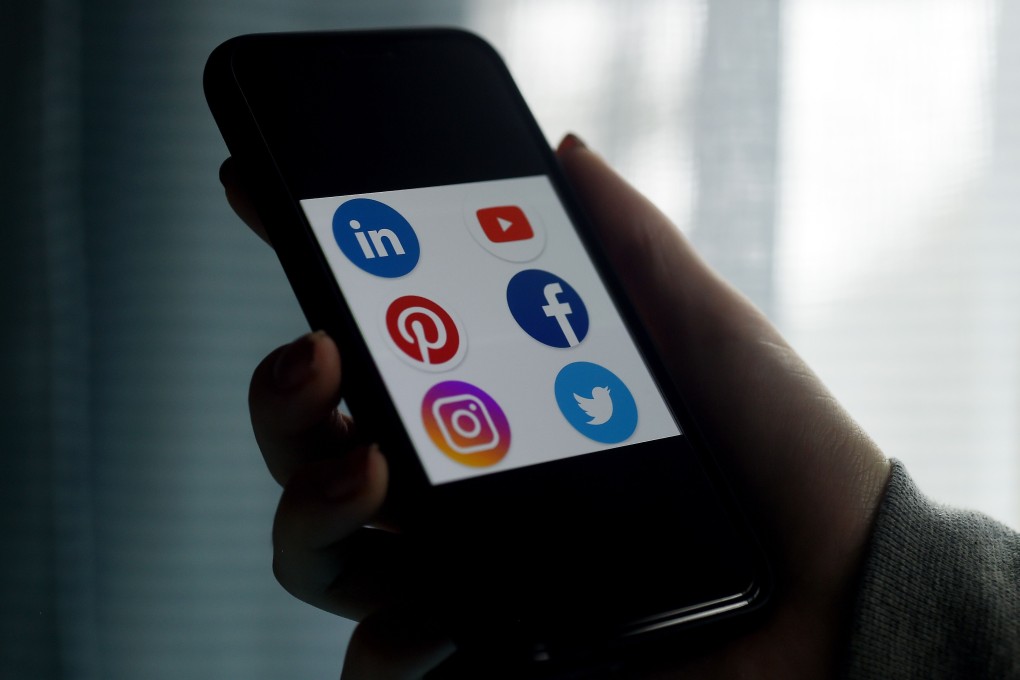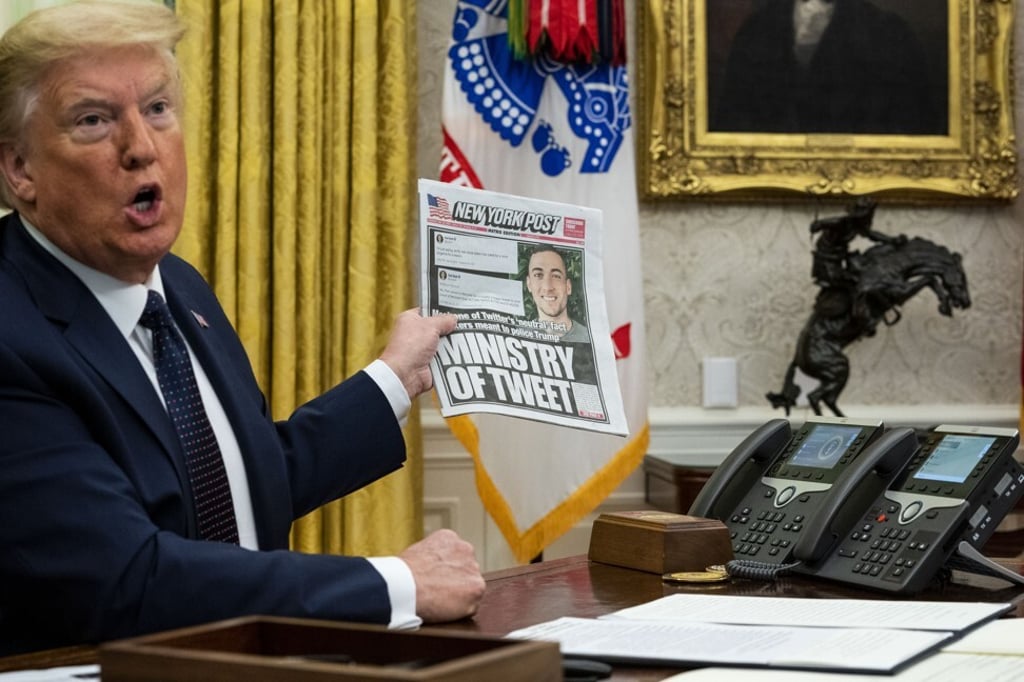Explainer | Section 230, a US law that made the modern internet
- Section 230 of the 1996 Communications Decency Act – itself part of a broader US telecoms law – provides a legal ‘safe harbour’ for internet companies
- That was challenged by US President Donald Trump in an executive order, one that would strip those protections if online platforms engaged in ‘editorial decisions’

Twenty-six words tucked into a 1996 US law overhauling telecommunications have allowed companies like Facebook, Twitter and Google to grow into the giants they are today.
Those are the words President Donald Trump challenged in an executive order on Thursday, one that would strip those protections if online platforms engaged in “editorial decisions” – including, in the president’s view, adding a fact-check warning to one of his tweets.
Under the US law, internet companies are generally exempt from liability for the material users post on their networks. Section 230 of the 1996 Communications Decency Act – itself part of a broader telecoms law – provides a legal “safe harbour” for internet companies.
But Trump and other politicians argue that Twitter, Facebook and other social media platforms have abused that protection and should lose their immunity – or at least have to earn it by satisfying requirements set by the government.

Just what is Section 230?